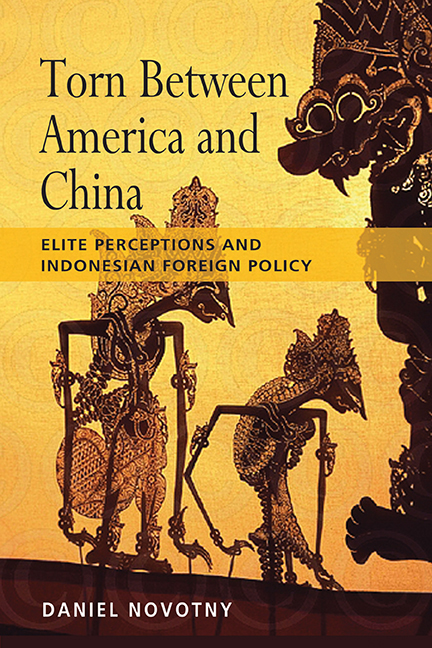Foreword
Published online by Cambridge University Press: 21 October 2015
Summary
Many countries will be “torn between” in the 21st century — called on to modulate their relations between the United States and China. Daniel Novotny's book stands as a work of foresight and imagination, attempting to understand the pressures that policy-makers face as the world moves into a new age of two great powers after the collapse of the Soviet system and a generation of unchallengeable U.S. dominance.
Novotny's book has a number of qualities to recommend it. First, there is the focus on how an Asian country and the world's largest Muslim country (yet with a powerful Chinese minority) finds its way between the United States, its friend since the 1960s, and a growingly powerful China, keen to assert its ascendancy in its region. Readers curious about China, Islam, and Southeast Asia need this book.
Second, Novotny raises teasing questions about how “foreign policy” is made. To what extent are the policies of modern states dictated by their material facts of life — their geographic boundaries, the richness of their economies, the ethnicities of their people? Or, do foreign policies get made by small elites who constantly balance their own interests, prejudices, and long-term judgements against the pressures of domestic politics?
Novotny makes an important contribution by trying to get at “the mind” of a bureaucracy and a state's elite as they formulate policy towards the world outside their political boundaries. His diligent interviewing highlights the qualities that scholarship can bring to the study of contemporary affairs: a journalist might do an interview here and there; Novotny, the scholar, had a hit-list of more than forty interviewees whose views he sought systematically and relentlessly.
This relentless interviewing highlights another aspect of the book. Novotny brings to his research the multiple lenses of a widely travelled European, highlighted by his own remarkable linguistic talent. He is a Czech who is fluent in three European languages and Indonesian. (He used to speak passable Spanish and Russian but says he has forgotten them through lack of use.) He has lived and worked throughout Europe, travelled widely in northern Africa and Southeast Asia, lived in Indonesia with his Balinese wife and their children and had much of his academic experience in Australia.
- Type
- Chapter
- Information
- Torn between America and ChinaElite Perceptions and Indonesian Foreign Policy, pp. xi - xivPublisher: ISEAS–Yusof Ishak InstitutePrint publication year: 2010

